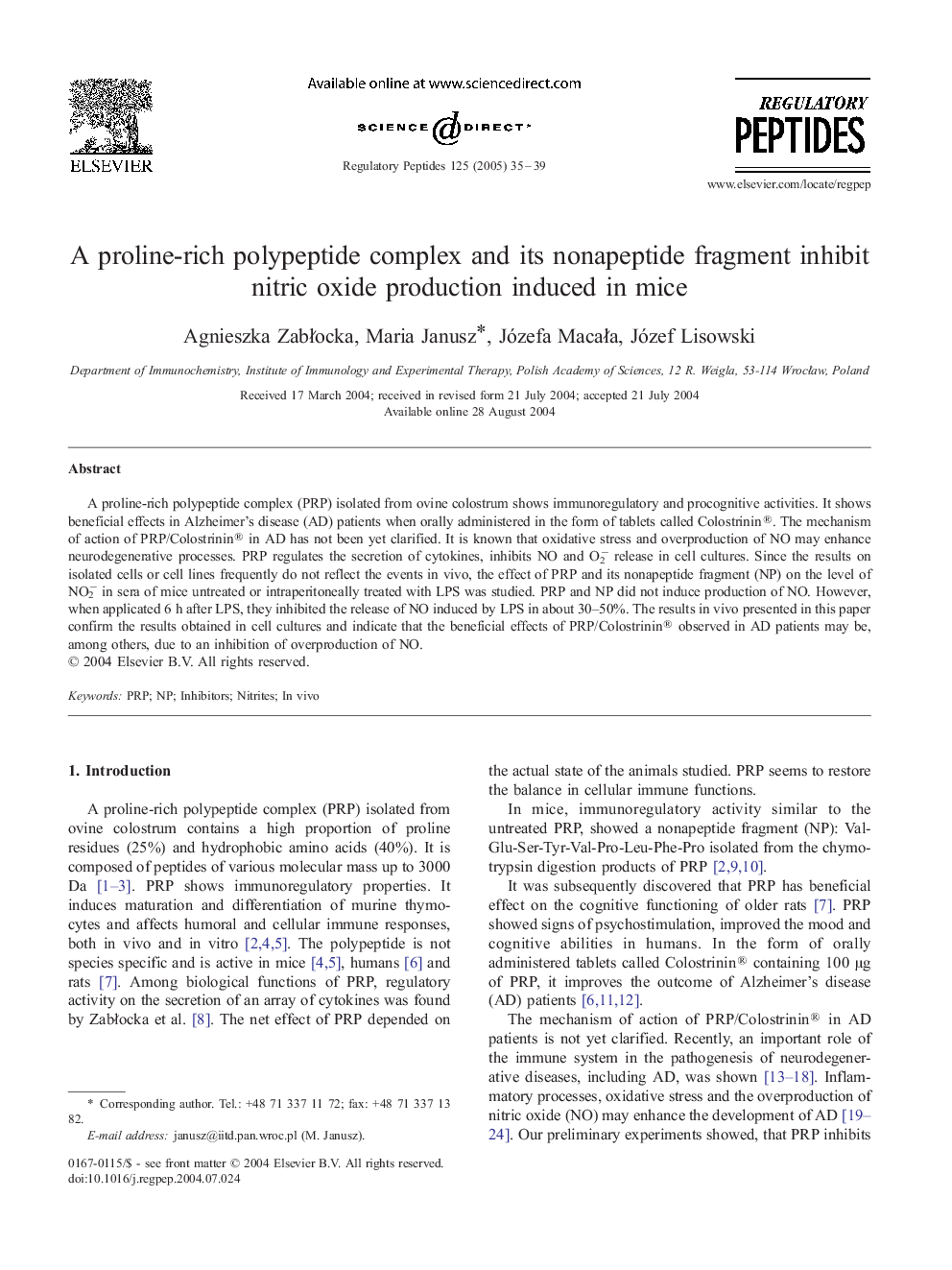| Article ID | Journal | Published Year | Pages | File Type |
|---|---|---|---|---|
| 9894498 | Regulatory Peptides | 2005 | 5 Pages |
Abstract
A proline-rich polypeptide complex (PRP) isolated from ovine colostrum shows immunoregulatory and procognitive activities. It shows beneficial effects in Alzheimer's disease (AD) patients when orally administered in the form of tablets called Colostrinin®. The mechanism of action of PRP/Colostrinin® in AD has not been yet clarified. It is known that oxidative stress and overproduction of NO may enhance neurodegenerative processes. PRP regulates the secretion of cytokines, inhibits NO and O2â release in cell cultures. Since the results on isolated cells or cell lines frequently do not reflect the events in vivo, the effect of PRP and its nonapeptide fragment (NP) on the level of NO2â in sera of mice untreated or intraperitoneally treated with LPS was studied. PRP and NP did not induce production of NO. However, when applicated 6 h after LPS, they inhibited the release of NO induced by LPS in about 30-50%. The results in vivo presented in this paper confirm the results obtained in cell cultures and indicate that the beneficial effects of PRP/Colostrinin® observed in AD patients may be, among others, due to an inhibition of overproduction of NO.
Keywords
Related Topics
Life Sciences
Biochemistry, Genetics and Molecular Biology
Biochemistry
Authors
Agnieszka ZabÅocka, Maria Janusz, Józefa MacaÅa, Józef Lisowski,
